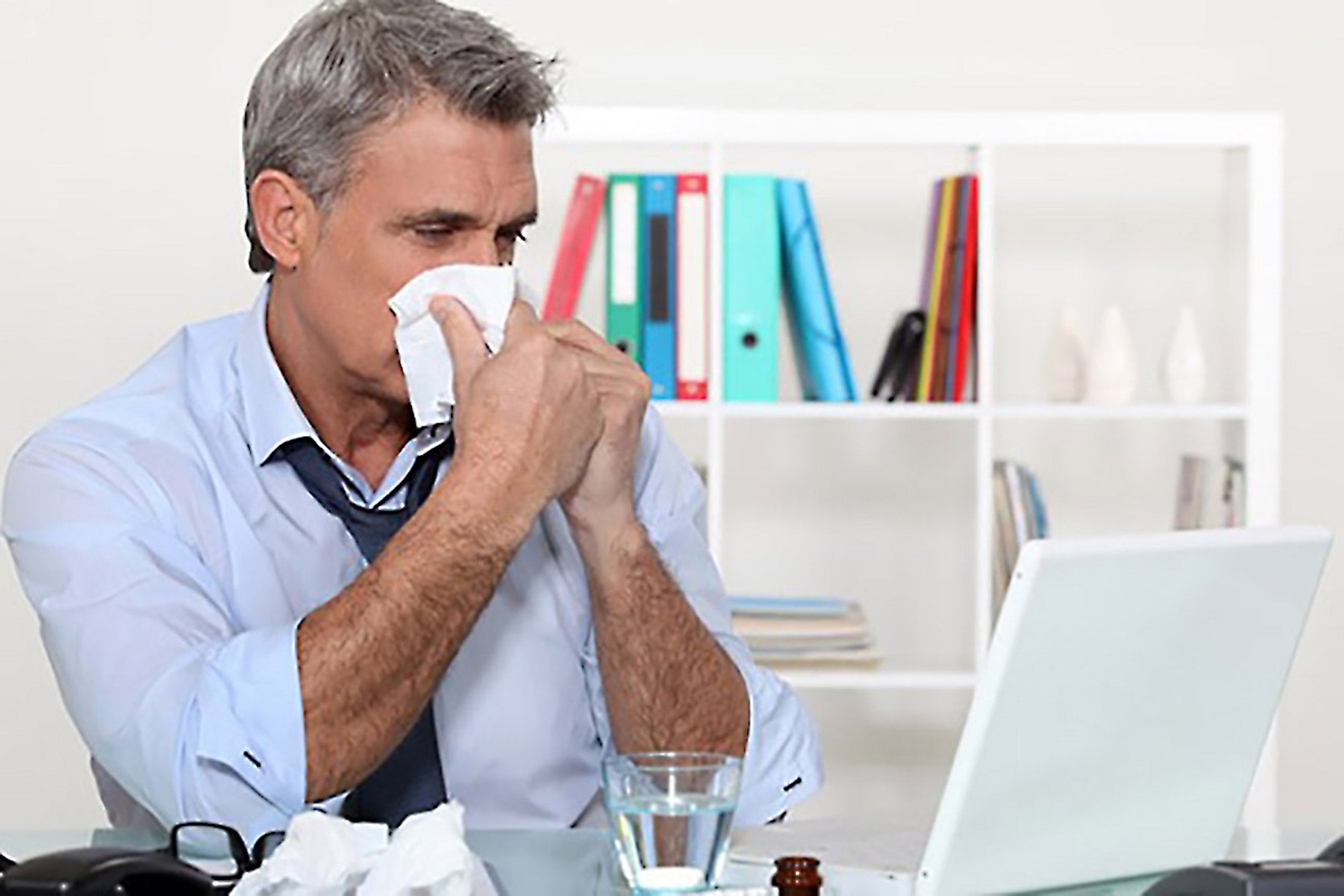Sick at Work? You're Not the Only One. In a survey from NSF International, a quarter of Americans reported going to work sick no matter what.
By Nina Zipkin

When you're sick, doctor's orders are pretty standard: rest, wash your hands, drink lots of fluids and stay far, far away from other people. But according to a new survey from Michigan-based public health organization NSF International, a quarter of Americans find themselves in the office on their off days, often due to economic necessity.
Forty-two percent of the 1,003 workers polled said that they go to work sick because of deadlines and work that would pile up in their absence. Twenty-five percent reported that they come to the office when they're sick because their supervisors expect them to work no matter what. Thirty-seven percent say they simply can't afford to be out for a day, and 57 percent of their co-workers think that's why they're in the office at all. The survey also found that men are about twice as likely as women to go to work when they're ill.
Related: How to Make a Flu Season Contingency Plan
Most employees are inclined to be understanding when their co-workers are under the weather. Sixty-seven percent say they think their sick colleagues are hard workers, and 57 percent would tell them to just go home and rest. But 16 percent think that ill co-workers are inconsiderate and selfish to expose the office to their germs, and 13 percent think co-workers go to work when they're not well because "they don't trust their colleagues to do the job while they're out."
Despite your valiant attempts to keep your stapler away from the cubicle mate whose desk has turned into a pharmacy, and no matter how frequently you disinfect the office common space, according to the CDC, flu season is still very much in full swing, especially for adults ages 18-64.
Related: New York City to Require Employers to Give Paid Sick Leave
In October, office supply company Staples reported similar statistics to NSF International. Its fourth annual flu season survey found that 90 percent of employees come to work when they're sick, up from 60 percent in 2011.
The best way to take care of each other would be to just stay home, but while eight states passed paid sick leave legislation (San Francisco was the first city in the country to institute it in '07, and New York is now looking to follow that template), the U.S. is the only country, compared to 22 nations with similar economic conditions, that does not have federal laws on the books to that effect.
Related: How to Keep Your Business Running When You Have a Serious Illness










